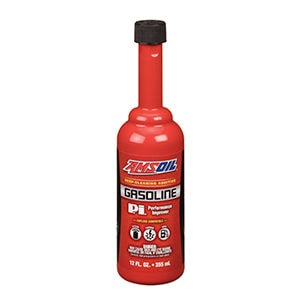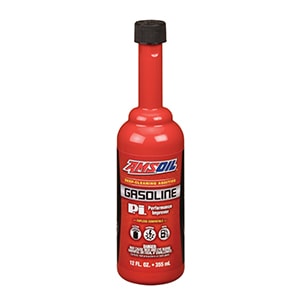Contents
Best Fuel Additives to Increase Horsepower (Under $500)
I will be talking about using Amsoil for Best Fuel Additives for routine maintenance and increasing power.
It’s the rallying cry of gearheads regardless of your favored make or model. By and large, more power can be expensive.
But there are surprisingly low-priced methods to expand horsepower most enthusiasts can do themselves.
Such as Amsoil P.i. Performance improver is the best fuel additives.
Searching for greater horsepower can rapidly lead you down a complicated, high-priced, and probably destructive rabbit hole.
With that in mind, we restricted the following listing to what most mechanical-inclined enthusiasts with a free weekend, an open garage stall, and a few hundred bucks can perform.
Amsoil P.i performance improver for the best fuel additive is only a few bucks to restore horsepower.
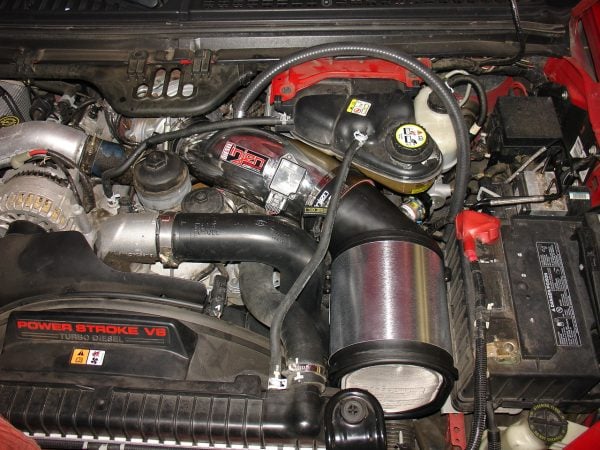
1. Upgrade the Air Intake
Many gearheads begin here.
For later-model throttle-body systems, upgrading to a cold-air intake is exceptionally easy and can supply a considerable horsepower increase.
Cold-air intakes help eliminate the sharp bends and restrictive air passages of some inventory intakes.
Increased airflow triggers the CPU to add greater fuel to the fuel/air mix. More fuel/air equal’s greater power.
As the title implies, cold-air intakes draw cooler air from backyard the engine compartment.
Cooler air is denser and oxygen-rich, once more ensuing in the pc growing the quantity of fuel, assisting the engine make extra power.
For most carbureted/traditional consumption configurations, a hood scoop or cowl-induction hood into a high-flow air cleaner is desirable.
2. Upgrade the Exhaust
More air getting into the engine capability greater air must exit the engine.
Long-tube or equal-length tube headers will nearly usually outperform a solid “log-style” manifold.
Equally, mandrel-bent tubing (sized to healthy the overall performance of your engine) into high-flow mufflers frees up the most flow.
While many inventory exhaust structures can cope with the introduced air from an upgraded intake…
Think about upgrading to a cat-back exhaust or high-flow catalytic converter, especially if you’ve already modified your engine to make extra power.
A cat-back exhaust consists of the whole lot mounted after the catalytic converter, which include the resonator, exhaust piping and muffler.
It’s generally designed with larger-diameter components in contrast to the inventory exhaust, permitting higher airflow.
Since it consists of the whole thing after the catalytic converter.
So, you don’t run the chance of disrupting your vehicle’s emissions machine by means of messing round with the catalytic converter.
Even so, a inventory catalytic converter can avoid airflow and decrease power, making it a high goal for an upgrade.
A high-flow catalytic converter facets large openings on both end, growing airflow and power.
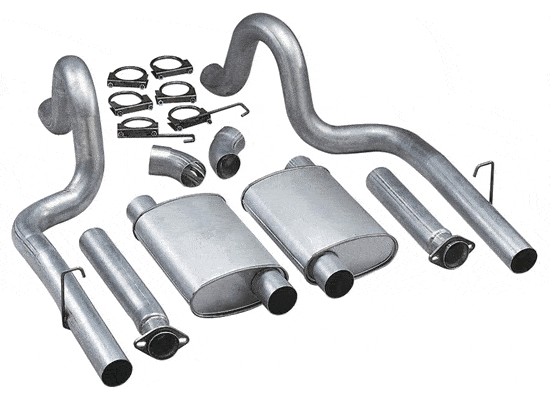
3. Install A Performance Tuner
Often known as “chips,” overall performance tuners plug into the diagnostic port.
They regulate the gas and timing maps to make bigger performance, commonly at the fee of gasoline economy.
Some overall performance tuners can enhance gas economy, though.
Tuners are specifically famous amongst diesel owners.
They’re about the easiest improve to set up on hand on the market.

Best Oil For Small Engines: Amsoil Synthetic Oil (#1)
4. Install a Boost Controller
If your engine is outfitted with a turbocharger or supercharger, it arrived from the manufacturing facility to supply a preset quantity of boost, measured in psi.
Installing a enhance controller lets in you to regulate the enhance stage produced in the consumption manifold.
It’s a appropriate thinking to installation a enhance gauges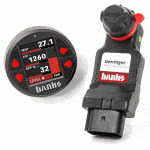 properly so you don’t overdo it.
properly so you don’t overdo it.
A proper rule of thumb is to make bigger enhance no greater than 15-20% over the manufacturing facility setting.
Bear in thinking that increasing improve too a good deal will harm your engine.
Do your research, be cautious and think about achieving out to a expert for guidance.
5. AMSOIL P.i. Performance Improver
AMSOIL P.i. Performance Improver which improves combustion and horsepower.
It also provides Cleaning fuel-system and deposits optimize the spray pattern, provides a less expensive fix.
In third-party checking out the usage of a 2016 Chevrolet* Silverado* with 100,616 miles (161,926 km) on the odometer, AMSOIL P.i.® increased horsepower 14% in simply one tank of gasoline.
Increasing Horsepower Requires Increased Protection.
All this delivered energy and warmness can invite engine put on and detrimental deposits if your oil isn’t up to the challenge.
Upgrade to Amsoil Synthetic motor oil. While you’re at it, upgrade to synthetic lubricants for your vehicle.

They provide extended put-on safety and resistance to heat. But they additionally maximize strength due to their capacity to limit friction in contrast to traditional lubricants.
Less friction helps maximize strength to the ground.
One remaining piece of advice…
Performing numbers 1-4 on this listing can void your warranty, so take a look at your car owner’s guide and proceed with caution.
One of the best fuel additives is P.i. performance improver.
Highest pea fuel system cleaner
When it comes to maintaining the efficiency and performance of your vehicle’s fuel system, using a high-quality fuel system cleaner is essential. Among the various types available, those containing PEA (polyetheramine) are widely regarded as some of the most effective in the market. PEA is a powerful detergent that targets and removes stubborn deposits from fuel injectors, intake valves, and combustion chambers, helping to restore optimal fuel flow and combustion efficiency.
While there are several fuel system cleaners that incorporate PEA, the quest for the highest PEA fuel systems cleaner involves finding products that not only contain a significant concentration of PEA but also offer additional advanced additives for enhanced performance. Here are some key factors to consider when searching for the highest PEA fuel systems cleaner:
- PEA Concentration: The effectiveness of a fuel system cleaner heavily relies on the concentration of PEA it contains. Look for products that clearly state a high percentage of PEA content, as this indicates a more potent cleaning action.
- Advanced Additives: The highest PEA fuel systems cleaners often go beyond just PEA and incorporate advanced additives that provide additional benefits. These additives can include detergents, antioxidants, corrosion inhibitors, and lubricity agents, among others. They help improve fuel system performance, protect against future deposits, and enhance overall engine efficiency.
- Compatibility: Ensure that the fuel system cleaner you choose is compatible with your specific vehicle and fuel type. Some cleaners are designed for gasoline engines, while others are formulated for diesel engines. Additionally, consider any specific requirements or recommendations from your vehicle manufacturer.
- Customer Reviews: Reading reviews and feedback from other users can provide valuable insights into the effectiveness and performance of different fuel system cleaners. Look for products that have consistently positive reviews, indicating their reliability and efficiency.
- Brand Reputation: Opting for fuel system cleaners from reputable brands known for their commitment to quality and performance can provide added peace of mind. Established brands often invest in research and development to create effective formulations that meet or exceed industry standards.
Ultimately, the highest PEA fuel systems cleaner for your vehicle may vary depending on factors such as the severity of deposits, fuel quality, and individual engine characteristics. It’s recommended to follow the manufacturer’s instructions and use the fuel system cleaner at regular intervals as part of your vehicle’s maintenance routine.
In conclusion, the search for the highest PEA fuel systems cleaner involves finding products with a high concentration of PEA, advanced additives for enhanced performance, compatibility with your vehicle and fuel type, positive customer reviews, and a reputable brand reputation. By choosing a high-quality fuel system cleaner, you can effectively combat deposits and maintain optimal fuel system performance for a smoother and more efficient driving experience.
Best Oil For Small Engines: Amsoil Synthetic Oil (#1)
Best fuel injector cleaner
When it comes to maintaining the performance and efficiency of your vehicle’s fuel system, using a high-quality fuel injector cleaner can make a significant difference. Over time, fuel injectors can become clogged with deposits, impacting fuel flow, combustion efficiency, and overall engine performance. A reliable fuel injector cleaner can effectively remove these deposits, restoring optimal fuel atomization and ensuring smooth engine operation.
To find the best fuel injectors cleaner for your vehicle, consider the following key factors:
- Cleaning Effectiveness: Look for a fuel injector cleaner that is known for its exceptional cleaning capabilities. The best cleaners utilize advanced cleaning agents that target and dissolve various types of deposits, including carbon buildup, varnish, and gum.
- Compatibility: Ensure that the fuel injector cleaner you choose is compatible with your vehicle’s fuel system and fuel type. Some cleaners are specifically designed for gasoline engines, while others are formulated for diesel engines. Check the product label or manufacturer’s recommendations to ensure a proper match.
- Advanced Additives: The best fuel injectors cleaners often contain advanced additives that provide additional benefits. These additives can include detergents, lubricants, antioxidants, and corrosion inhibitors, among others. They help optimize fuel system performance, protect against future deposits, and improve overall engine efficiency.
- Ease of Use: Consider the convenience and ease of use when selecting a fuel injector cleaner. Look for products that come with clear instructions and are easy to apply. Some cleaners can be added directly to the fuel tank, while others require a more involved process. Choose one that suits your preference and skill level.
- Customer Reviews: Reading reviews and feedback from other users can offer valuable insights into the effectiveness and performance of different fuel injector cleaners. Pay attention to the experiences shared by customers who have used the product in vehicles similar to yours.
- Brand Reputation: Opt for fuel injector cleaners from reputable brands known for their commitment to quality and performance. Established brands often invest in research and development to create effective formulations that meet or exceed industry standards.
Remember that the best fuel injectors cleaner may vary depending on factors such as the severity of deposits, fuel quality, and individual engine characteristics. It’s recommended to follow the manufacturer’s instructions and use the fuel injector cleaner at regular intervals as part of your vehicle’s maintenance routine.
In conclusion, finding the best fuel injectors cleaner involves considering factors such as cleaning effectiveness, compatibility with your vehicle, advanced additives, ease of use, customer reviews, and brand reputation. By selecting a high-quality fuel injector cleaner, you can effectively remove deposits and ensure optimal fuel system performance, leading to improved engine efficiency and a smoother driving experience.
Fuel additives that work
When it comes to maximizing the performance and efficiency of your vehicle, fuel additives can play a crucial role. Fuel additives are specially formulated substances that are added to the fuel tank to enhance various aspects of fuel combustion and engine operation. While there are numerous fuel additives available on the market, it’s important to understand which ones truly deliver results. Here, we explore some fuel additives that have proven to be effective in enhancing performance and efficiency:
- Fuel System Cleaners: Fuel system cleaners are designed to remove deposits and impurities that accumulate in the fuel system over time. They effectively clean fuel injectors, intake valves, and combustion chambers, improving fuel atomization and optimizing engine performance. Look for fuel system cleaners that contain powerful detergents and additives like polyetheramine (PEA) for effective and thorough cleaning.
- Octane Boosters: Octane boosters are additives that increase the octane rating of the fuel, improving its resistance to engine knock or detonation. Higher octane fuel can support more efficient combustion, particularly in high-performance engines or vehicles that require premium gasoline. Octane boosters can enhance power output, throttle response, and overall engine performance.
- Fuel Stabilizers: Fuel stabilizers are useful additives for vehicles that experience long periods of inactivity or storage. They prevent fuel degradation, oxidation, and the formation of varnish and gum. By maintaining fuel quality and stability, fuel stabilizers ensure easier engine starts, smoother operation, and protection against fuel system corrosion.
- Ethanol Treatments: Ethanol is commonly blended with gasoline, but it can have negative effects on fuel system components. Ethanol treatments are additives specifically formulated to address issues related to ethanol-blended fuels. They help stabilize ethanol, prevent phase separation, and protect against corrosion and fuel system damage caused by ethanol’s hygroscopic properties.
- Diesel Fuel Additives: Diesel fuel additives are tailored to address the specific needs of diesel engines. They offer benefits such as improved cetane rating, enhanced lubricity, reduced fuel system wear, and prevention of fuel gelling in cold weather. Diesel fuel additives can also clean injectors, remove deposits, and improve fuel economy.
When selecting fuel additives, it’s crucial to choose products from reputable brands that have a proven track record of effectiveness. Additionally, follow the manufacturer’s instructions for dosage and application to ensure optimal results and avoid any potential adverse effects.
In conclusion, fuel additives can significantly enhance the performance and efficiency of your vehicle. Fuel system cleaners, octane boosters, fuel stabilizers, ethanol treatments, and diesel fuel additives are among the additives that have demonstrated their effectiveness. By incorporating these additives into your regular fueling routine, you can enjoy improved engine performance, fuel economy, and overall driving experience.
AMSOIL Synthetic Motorcycle Oil vs. Harley Davidson Motor Oil
How to use fuel additive
Using a fuel additive is a simple process that can help maintain the performance and efficiency of your vehicle. Here are the general steps to follow when using a fuel additive:
Read the Instructions: Before using any fuel additive, it’s essential to carefully read and understand the instructions provided by the manufacturer. Each additive may have specific recommendations regarding dosage, application, and compatibility.
- Choose the Right Additive: Select a fuel additive that is suitable for your vehicle and addresses your specific needs. There are different types of additives available, such as fuel system cleaners, octane boosters, stabilizers, and ethanol treatments. Ensure that the additive you choose matches the requirements of your engine and fuel type.
- Determine the Proper Dosage: The packaging or instructions of the fuel additive will indicate the recommended dosage. It is crucial to measure the correct amount of additive according to the instructions. Using too little may not provide the desired results, while using too much can lead to adverse effects.
- Add the Additive to the Fuel Tank: Start by locating the fuel filler cap on your vehicle. Remove the cap and safely place it aside. Carefully pour the measured additive into the fuel tank, ensuring that it is directed into the tank and not spilled on the vehicle’s exterior or surrounding areas.
- Fill the Tank with Fuel: After adding the fuel additive, proceed to fill the fuel tank with gasoline or diesel as usual. This will help ensure that the additive mixes thoroughly with the fuel and distributes evenly throughout the system.
- Drive Normally: Once you have added the fuel additive and filled the tank with fuel, you can drive your vehicle as you normally would. The additive will circulate through the fuel system as you drive, helping to clean and optimize various components.
- Follow Recommended Usage Frequency: Depending on the type of fuel additive, it may be beneficial to use it regularly or as recommended by the manufacturer. Some additives are designed for periodic use, such as during oil changes or preventive maintenance intervals. Others can be used more frequently for ongoing maintenance.
Remember to always follow the manufacturer’s instructions for the specific fuel additive you are using. If you have any concerns or questions about using a fuel additive, consult your vehicle’s owner’s manual or seek advice from a qualified mechanic or automotive professional. By using fuel additives correctly and as directed, you can optimize the performance, efficiency, and longevity of your vehicle’s fuel system.
FAQs
Q. Do fuel additives really work? A. Yes, fuel additives can be effective in improving the performance and efficiency of your vehicle. However, the effectiveness may vary depending on the specific product and the issue you are trying to address. Q. Which fuel additive works best? A. The best fuel additive depends on your specific needs and the problem you want to solve. Different additives excel in different areas, such as cleaning the fuel system, boosting octane levels, or stabilizing fuel. It's important to consider factors like your vehicle type and the desired outcome before choosing a fuel additive. Q. What is the best fuel additive for bad gas? A. When dealing with bad gas, using a fuel additive that focuses on stabilizing and restoring fuel quality is recommended. Look for additives specifically designed to address contaminated or degraded fuel to help mitigate the negative effects. Q. Is Lucas fuel additive the best? A. Lucas fuel additive is a popular brand known for its quality products. However, determining the "best" fuel additive depends on individual preferences and the specific needs of your vehicle. It's advisable to research and consider various brands, read customer reviews, and consult with professionals to make an informed decision.
P.i. performance improver increases horsepower requires increased protection.
All this introduced energy and warmth can invite engine put on and dangerous deposits if your oil isn’t up to the challenge.
Upgrade to Amsoil synthetic motor oil. While you’re at it, improve to synthetic lubricants at some point of your vehicle.
They provide increased put on safety and resistance to heat.
But they additionally maximize electricity due to their capability to reduce friction in contrast to traditional lubricants.
Less friction helps maximize energy to the ground.
One remaining phrase of advice: performing numbers 1-4 on this listing can void your warranty.
So, check your automobile owner’s guide and proceed with caution.

